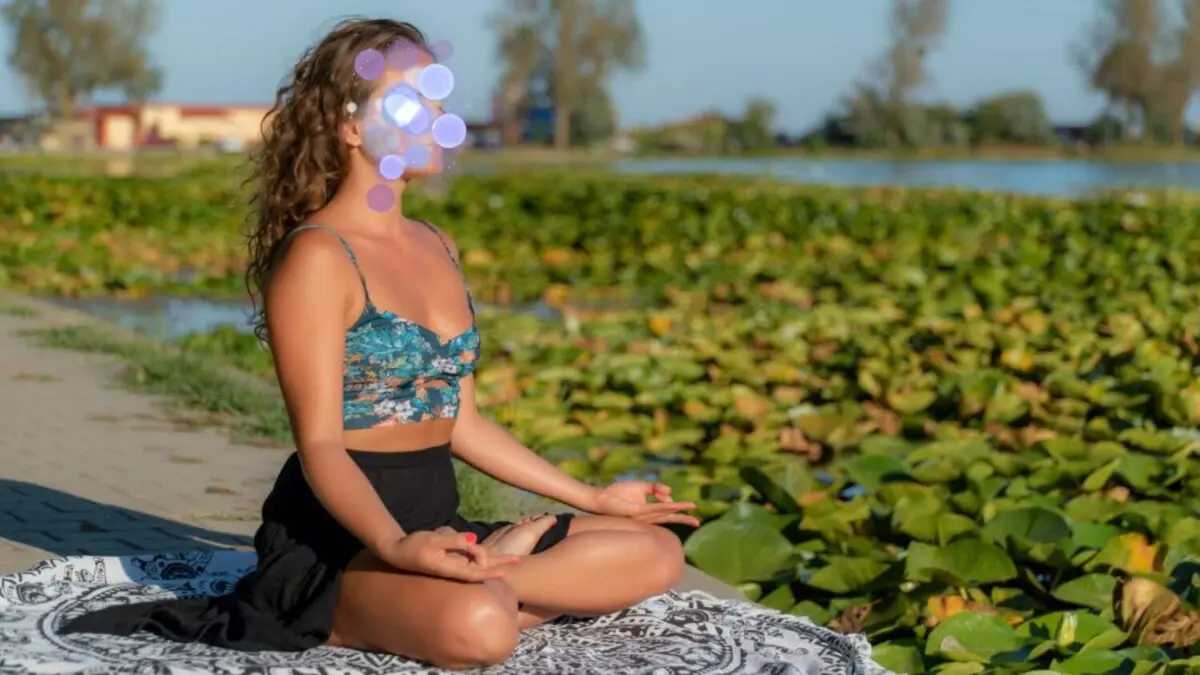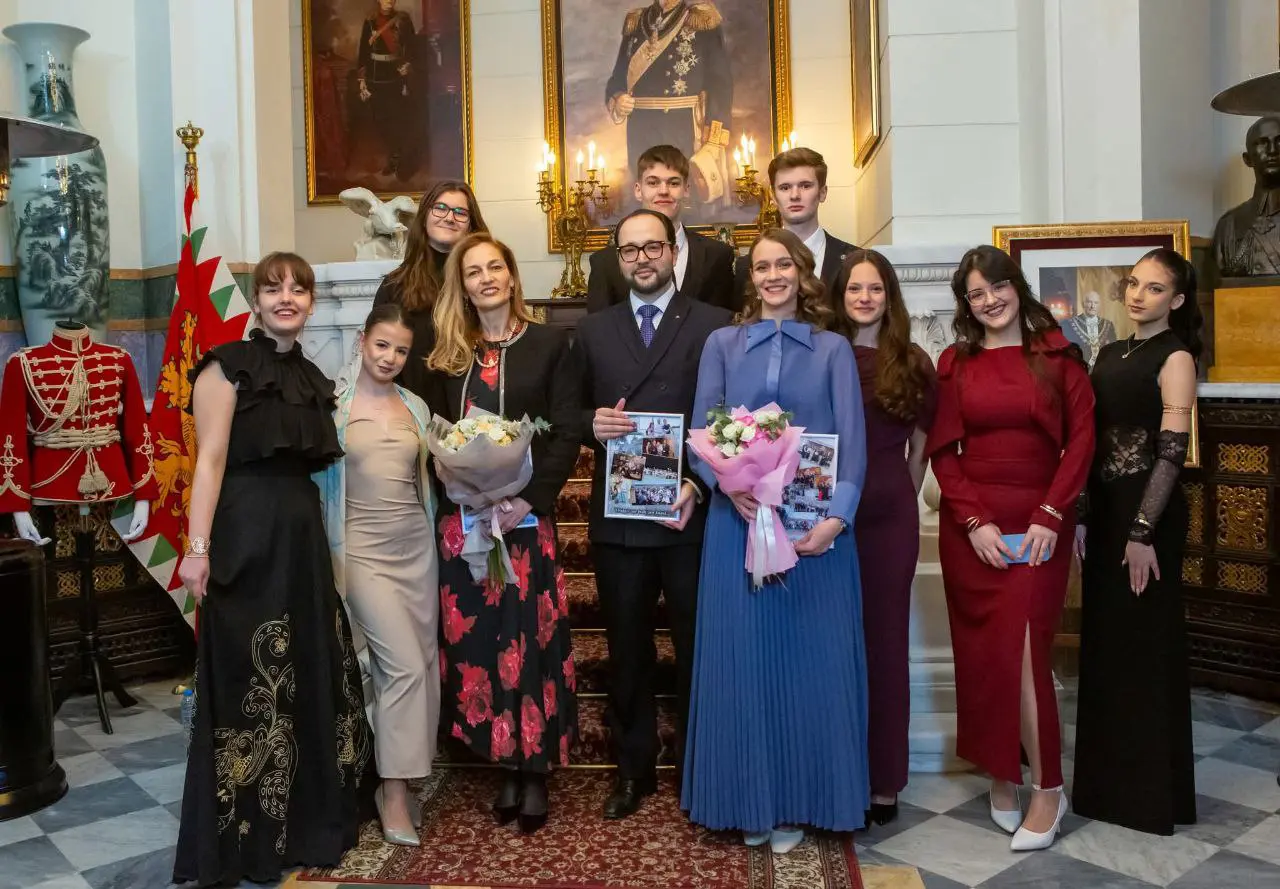Inappropriate and disproportionate use of massive police raids on several yoga centers and abusive detention of dozens of yoga practitioners. Still no progress in the judicial proceedings.
“In the last ten years, I have been several times in Vitry-sur-Seine to stay in a place which was used for spiritual retreats by yoga practitioners. Every time it was comfortable, the environment was very pleasant and quiet, but on 28 November 2023, it turned into a nightmare and a traumatic experience.”
This is what Ms A.D. told Human Rights Without Frontiers (HRWF) which collected the testimonies of dozens of Romanian citizens having a spiritual retreat in the seven yoga centers raided simultaneously by the police in and around Paris but also in Nice in November 2023.
A wide-scale raid launched at 6 a.m. by a SWAT team of around 175 policemen wearing black masks, helmets, and bullet-proof vests, brandishing semi-automatic rifles. The official objective of the operation was to arrest people involved in “trafficking in human beings”, “forcible confinement” and “abuse of vulnerability” in organized gang.
With the passing of time, the police seemed to be puzzled, as they were trying to categorize each Romanian as a “suspect,” a “victim” or a “witness.” They were trying to discern whether their captives were suspects (of rape, trafficking, etc.), victims, or whether they might be useful as witnesses.
Here is the interview of Ms A.D., who has been practicing yoga in various centers of the MISA yoga school in Romania for 16 years. She is a language teacher and translator who graduated from the University of Letters in Cluj-Napoca and also got a Master’s degree in literary translation from the University of Bucharest.
Q.: What motivated you to go from Romania to Paris Region for a spiritual retreat?
A.D.: My previous enriching experiences in Vitry-sur-Seine. Sometimes I was travelling by car or by air from Romania but this time I flew from Denmark where I had spent some time in a yoga center. As usual I had not planned to stay for a specific period in France. It could be one month or more.
Q.: How did you experience the massive police raid in November 2023?
A.D.: The early morning of 28 November last was quite traumatic for the seven guests that were staying in the house: six women and one man. At 6:00 a.m., while we were all sleeping peacefully we were abruptly and shockingly awakened by a terrible banging noise I had never heard before, not even in movies. It was the brutal breaking of the front door. A flood of strange black men burst into the house, shouting “Police, police.” I could not say how many there were but they were numerous. They were shouting “Don’t be afraid. We are here to help you and to rescue you.” I was wondering from what we needed to be rescued. We were not victims of anything and there was no fire.
After allegedly securizing the premises, the SWAT team withdrew, leaving a crowd of civilians in plainclothes who failed to identify themselves and tell us the nature of their presence there. As I was asking them pressing questions, one of them showed me a paper in French I could not understand and said their action came as a result of a rogatory commission. They started to interrogate each of us. I and some other yoga practitioners then began to protest loudly but peacefully. One of us, a woman, was handcuffed, which shocked all of us.
Finally, it was announced that we would be taken to the police station to know “who did what” and “what role we had in what”. Our questions about changing clothes, going to the bathroom, having first breakfast, drinking or taking some water with us, and so on were met with impatience, irritation and even refusals. It was almost impossible to remove our night clothes in privacy and put on something more appropriate in this cold early morning of end November.
Q.: How was the transfer to the police station?
A.D.: During the trip to the police headquarters, I was in a state of fear, anxiety and even anguish. Eventually we arrived in front of a tall glass-fronted building with the words “Ministry of the Interior” at the entrance. We later found out that we were in Nanterre. One of the translators who assisted us afterwards explained to me that the location to which we had been brought was the highest level of a criminal investigation process. I felt that by this remark the interpreter wanted to intimidate me and make me understand our case was serious.
We were kept waiting in a standing position for a very long time before entering our cells. My legs were very sore. There were many other yoga practitioners who had been transferred from other raided places to the same police station.
Q.: What were the detention conditions?
A.D.: Although we were first considered victims, which we all strongly denied, we were put in detention for two days and two nights! There were four of us in the cell I was assigned to but there were only three beds. So, one of us had to put her mattress, which was thin, on the floor and sleep like that. One of the girls was very cold and we gave her our blankets.
The atmosphere in the cell was quite tense. There was an almost constant sense of fear and anxiety, insecurity and a certain heavy, gloomy hopelessness.
In the cell, when we needed to use the toilet or anything else, we had to stand in front of the camera through which we were watched there and wave. Quite often, when we needed to go to the toilet, both I and the other girls in the cell kept waving at the camera but it would take a long time for someone to show up, which was a very embarrassing situation. Every time, a police officer was unpleasantly taking each of us to the bathroom, grumbling, swearing and slamming the door of the cell. When I later pointed this out to one of the policewomen during questioning I was told that there were a lot of people to be interrogated and that there was not enough staff. However, it was not my impression that they were overworked.
Q.: What about the interrogations, the translation services and the lawyers?
A.D.: During my two days of detention, I was interrogated twice. The first lawyer discouraged me from refusing to answer the questions, although it is my right to keep silent, because it is usually drug dealers and similar criminals who opt for such an attitude, he said. The second lawyer tried to intimidate me, saying the accusations against us were very serious.
Moreover, the translator assigned on the second day was totally incompetent. I cannot believe that he was a certified interpreter. He was Romanian and could understand what I was saying but his command of the French language was obviously insufficient. Several times, I turned to him and asked him pointedly how to say in French certain words I didn’t know. He was unable to answer me. I have some knowledge of the French language, though limited, but I could see that his translations were much shorter than my declarations. I even made some big efforts to speak French to fill in the gaps of what he had not translated.
I could not understand why I had to spend two days and two nights, and maybe more if they decided for any stupid reason to prolong my custody. I was not a victim of anything and I had not committed any wrongdoing!
Otherwise, the questions in both interrogations were, for some of them, hallucinatory to me, absurd, insulting and irrelevant, including about my intimate, sexual amorous and love life. The interrogator obviously wanted me to say I had been sexually abused or raped in the framework of the so-called MISA centers in France.
At the end of my first hearing I was given a report of it in French of quite a number of pages to be signed. The interpreter was next to me but did not translate the document for me. Despite my limited understanding of French, I rapidly perused through it, which generated some reactions of dissatisfaction of the interrogator. However, I found several passages where there were inaccuracies as compared to what I had said. I pointed this out to them and asked them to correct it. They did it, but with some irritation. Given the circumstances, I could only wonder if there were not even more inaccuracies that I did not have enough time or knowledge of French to discover on the spot. I was not given a copy of the report and I find this whole procedure very questionable.
Q.: Tell us about your release after the 48-hour custody
A.D.: Shortly before 48 hours elapsed in custody, I was called and told that I was free and could leave. It was about 9 p.m. Outside it was already dark and very cold. Without any money or phone with me, what could I do? The police officers just shrugged their shoulders. Other yoga practitioners were also released almost at the same time and altogether we managed to find a solution to go back to our spiritual center in Vitry-sur-Seine, which had not been sealed(!), and get back what had not been confiscated. Fortunately, they had not found my computer and my phone and some money, but others were not so lucky. Jewels had disappeared. Their owners did not know if they had been confiscated by the police as they were never told about it and were not given a list of confiscated items.
In the days that followed this shocking experience, I had strong feelings of anxiety and uncertainty, confusion and lack of confidence in the future. I had the feeling that I was being watched. I was locking the doors with all the keys, pulling the curtains and covering every corner of the window. Sometimes the vision of breaking the front door and police brutally entering the house comes back to me and I’m afraid it will happen again. I have also experienced bouts of depression and a tendency to isolate myself emotionally. All these symptoms of post-traumatic stress have not yet disappeared, more than six months later.






